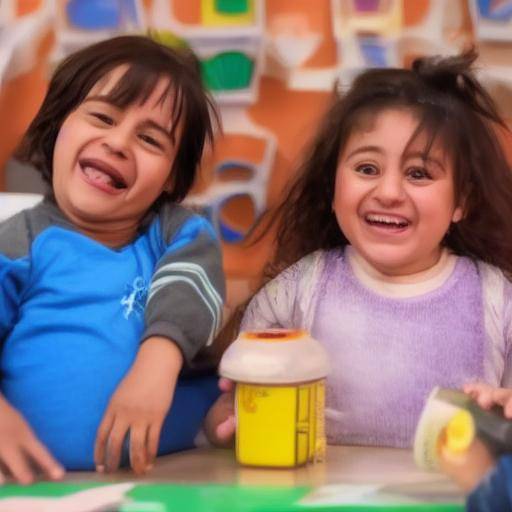
In the search for inner peace and emotional balance, we often encounter the need to cultivate patience. Patience, such a valued virtue, helps us to face the challenges of life with serenity and understanding. However, how can we develop this quality so crucial in a world full of tensions and haste? This is where deep breath comes into play.
In this article, we will explore the relevance of deep breathing in the development of patience and its impact on emotional well-being. From its historical foundations to contemporary practices, we will examine in depth how the connection between conscious breathing and patience leads us to a state of inner calm. In addition, we will highlight practical advice, expert opinions and future trends to provide a holistic view on this vital issue.
History and Background
The practice of deep breathing has ancient roots that go back to ancient cultures such as Indian, Chinese, and other oriental traditions. In the field of traditional medicine, the healing power of conscious breathing has been recognized for centuries. Throughout history, influential figures have promoted the importance of deep breathing, as is the case of yogis and spiritual masters.
Deep breathing has been an integral part of various disciplines, from yoga to meditation techniques. Over the course of time, its relevance has transcended cultural boundaries and has been integrated into contemporary therapeutic practices, being adopted in fields such as psychology, cognitive-behavioral therapy, and stress management.
Analysis in Deep
When we immerse ourselves in the world of deep breathing, we find a range of benefits that go beyond simple relaxation. Scientific studies have shown that deep breathing has a direct impact on the nervous system, reducing stress, calming the mind, and promoting mental clarity. At the same time, the development of patience is strengthened by this practice, as it allows us to manage adverse circumstances with greater equanimity and long-term perspective.
Comprehensive review
The practical application of deep breathing in the development of patience encompasses both individual and collective aspects. In the individual plane, the incorporation of deep breathing techniques in daily life can lead to a significant improvement in the ability to handle impatience and irritability. On the other hand, in collective contexts, the dissemination of mindfulness and conscious breathing programs has generated positive impacts on working, educational, and medical care environments, where patience is an invaluable asset.
Comparative analysis
The connection between deep breathing, patience, and emotional well-being becomes clearer when conducting a comparative analysis. Although each of these elements has its own intrinsic value, its interrelationship is evident. Deep breathing practice fosters patience, which in turn contributes to greater emotional and mental well-being. Thus, a virtuous cycle is established in which the development of patience through conscious breathing nourishes a more balanced emotional state.
Practical Tips and Accessible Orientation
For those interested in integrating deep breathing into their daily routine and developing patience, there are a number of practical strategies that can be valuable. Incorporating deep breathing as part of a mindfulness practice or regular meditation can provide an effective approach to cultivate patience. Also, looking for the support of professionals in the field of psychology or respiratory therapy can enrich the understanding of the interconnections between breathing, patience and emotional well-being, providing additional tools for personal growth.
Perceptions of Industry and Expert Reviews
Experts in psychology, respiratory therapy, and mindfulness have expressed a consensus on the positive influence of deep breathing in the development of patience. From academia to the clinical world, opinions converge in the transformative potential of this practice to nurture patience and promote emotional well-being. The integration of these specialized perspectives widens the understanding of how conscious breathing can influence the effective management of stress and the promotion of patience in various contexts.
Case Studies and Practical Applications
Through various examples and real cases, the concrete application of deep breathing in the promotion of patience and emotional well-being is evident. From educational environments to health organizations, the implementation of conscious breathing programs has shown shocking results, both in stress reduction and in patient development in individuals of all ages. These cases provide a practical view of how deep breathing can significantly influence the approach of impatience and anxiety.
Future Trends and Predictions
As awareness of the importance of mental and emotional health continues to grow, the integration of deep breathing into the development of patience is expected to become more relevant in modern society. The forecasts indicate greater adoption of conscious breathing practices in working, educational, and medical care settings, in order to promote a culture of patience and emotional well-being in general.
Conclusion
In short, deep breathing emerges as a powerful tool on the path to the development of patience and emotional well-being. By recognizing their intrinsic connection with patience and their transformative impact on our quality of life, we open the door to a path of serenity and understanding. Incorporating conscious breathing as a central element in the pursuit of patience is a significant step towards a more balanced and harmonious existence.
While the challenges of everyday life can test our patience, the constant practice of deep breathing offers a shelter of calm and clarity. By honoring this connection, we strengthen our ability to face challenges with grace and compassion, and build a solid foundation for our long-term emotional well-being.
FAQs
1. What is deep breathing and how does it relate to patience?
Deep breathing is a conscious breathing technique that involves slowly and deeply inhaling through the nose, expanding the diaphragm, and exhaling in a controlled manner. It relates to patience by providing an effective tool for managing stress, cultivating inner calm, and fostering a patient perspective against difficulties.
2. What are the benefits of deep breathing for emotional well-being?
The benefits of deep breathing for emotional well-being include reducing stress, promoting mental clarity, improving emotional management, and strengthening patience and understanding.
3. What role does patience play in the development of a resilient mentality?
Patience plays a crucial role in the development of a resilient mentality by providing the ability to face the challenges with equanimity, adaptability, and perseverance. Deep breathing becomes a tool to nourish this fundamental quality.
4. How can I incorporate deep breathing into my daily routine?
You can incorporate deep breathing into your daily routine by dedicating a few minutes each day to mindfulness or meditation practices that include conscious breathing techniques. In addition, you can integrate deep breathing into moments of stress or anxiety, taking conscious pauses to recover the calm.
5. Do you need special training or skills to practice deep breathing?
Deep breathing practice does not require special skills or advanced training. It is an accessible technique that can be learned and applied by anyone interested in cultivating inner calm and strengthening patience.
6. What additional resources can I use to explore the relationship between deep breathing, patience, and emotional well-being?
In addition to personal practice, there are additional resources such as books, meditation and mindfulness applications, online courses, and conscious breathing training programs that can provide guidance and support to deepen this vital connection.
With the understanding of deep breathing as a vehicle to patience and emotional well-being, we can nurture a more compassionate and balanced approach to the vicissitudes of life. This alliance between conscious breathing and patience establishes a solid foundation for the management of stress, the development of resilience, and the promotion of a more serene and understanding attitude towards everyday challenges. By making deep breathing an ally on our journey to patience, we embrace a path of inner harmony and lasting emotional well-being.






















































